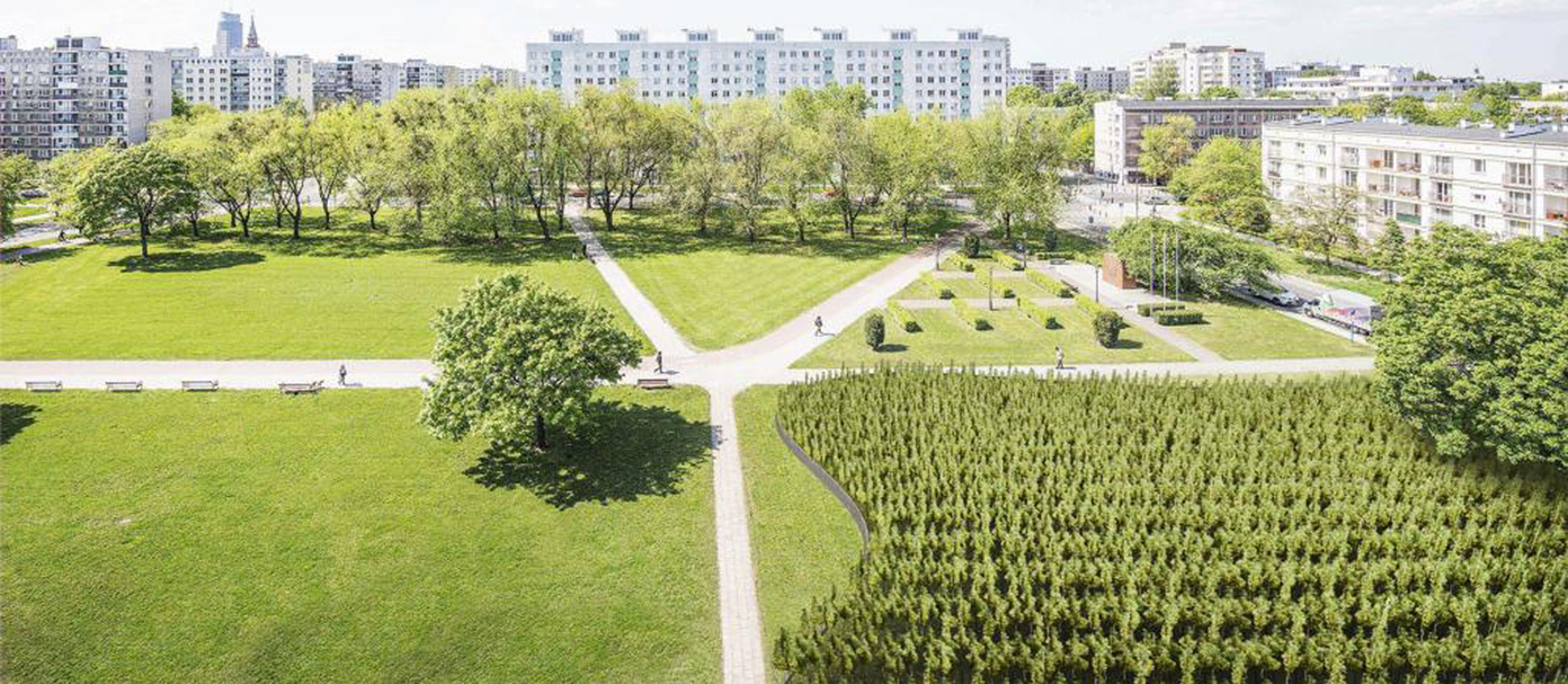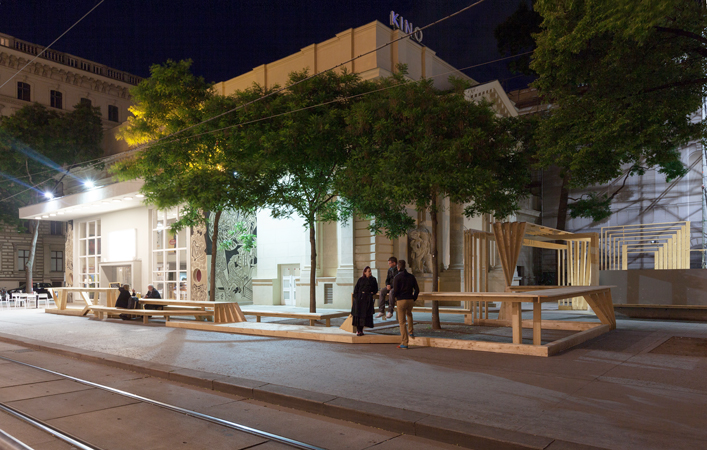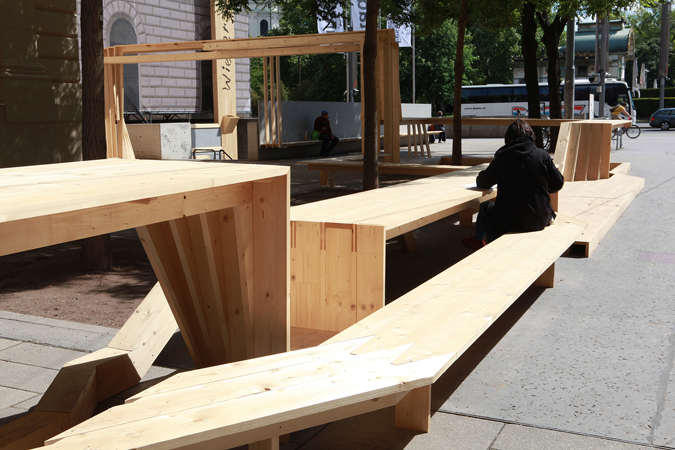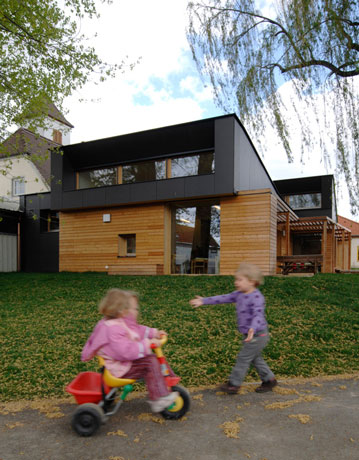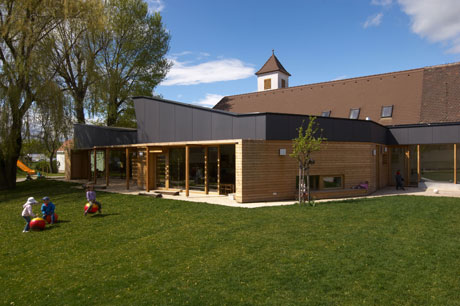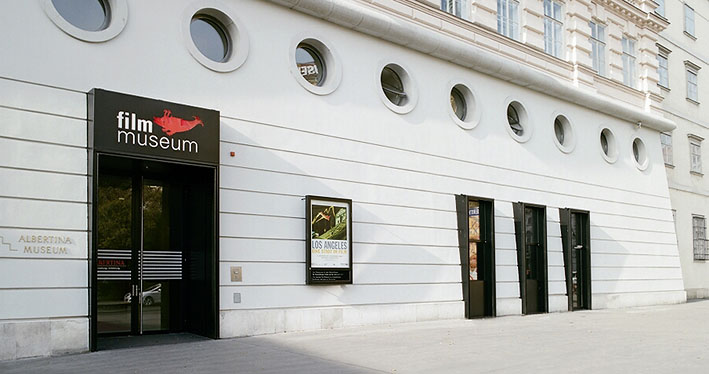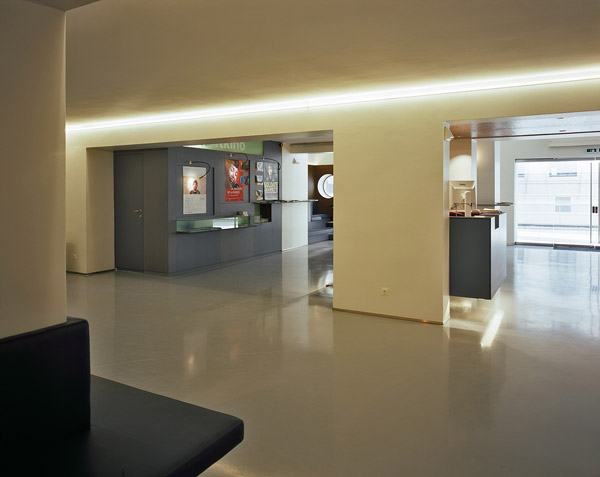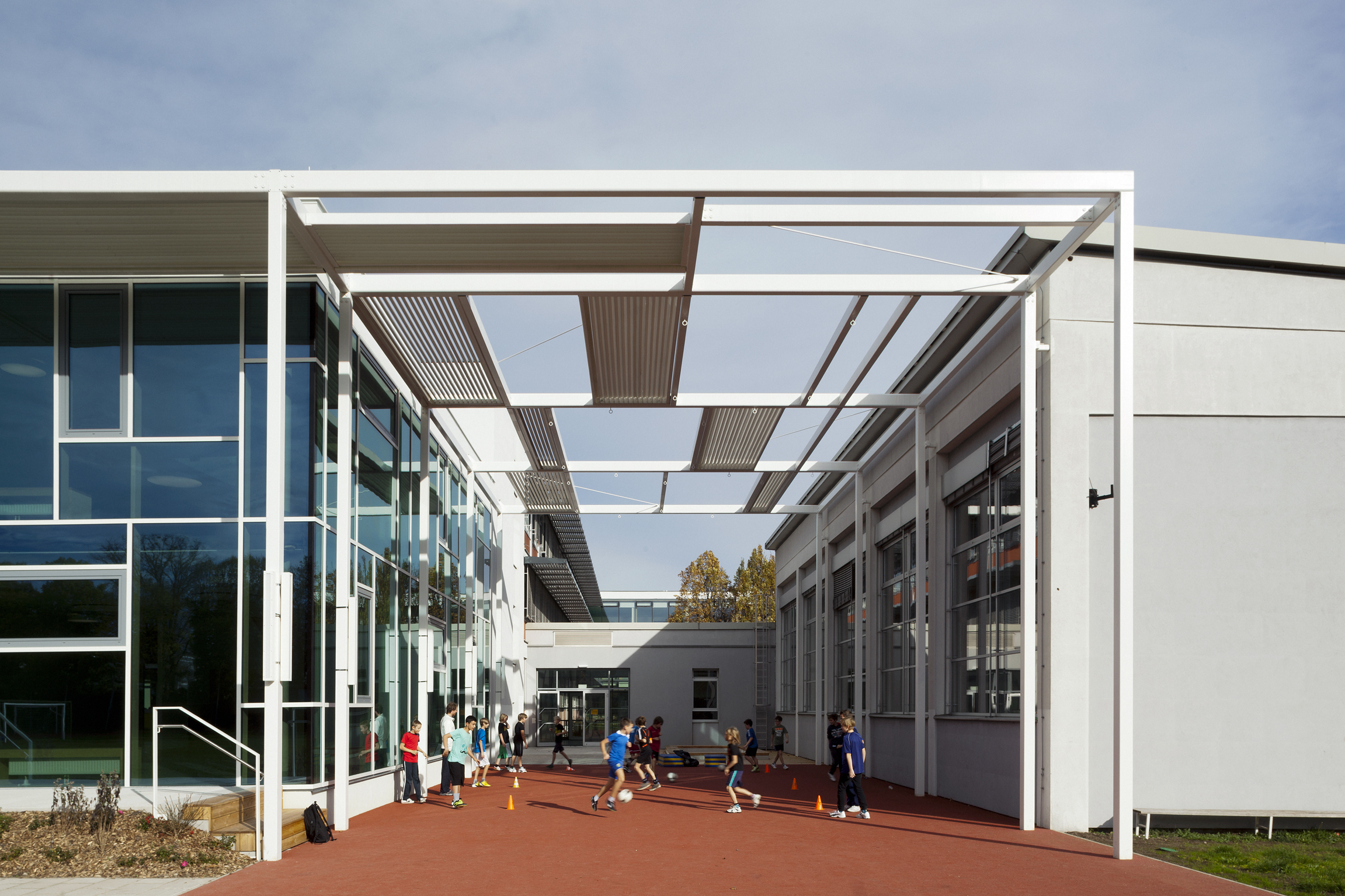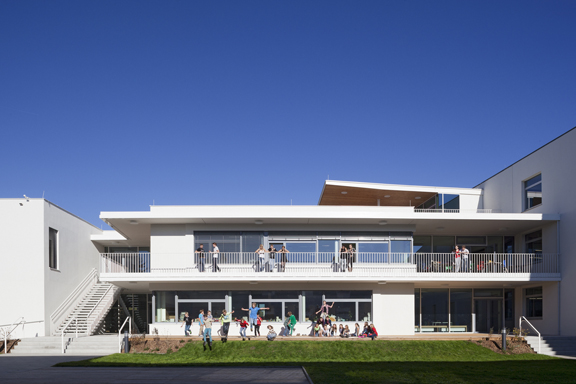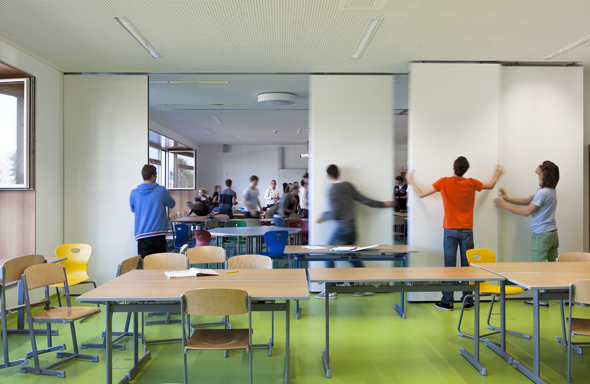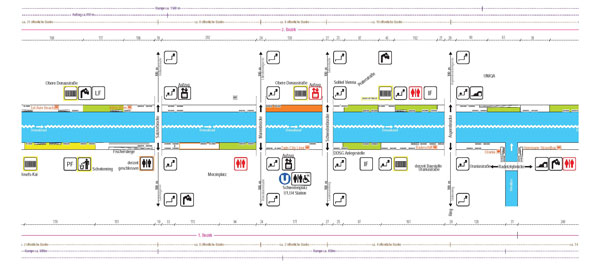Photo: (c) Gabu Heindl
Profession: architect, urban planner, professor
Position: head, owner, GABU Heindl Architektur, external teacher (Universities), chair woman of Austrian Society for Architecture
Organization: GABU Heindl Architektur, current: Academy of Fine Arts, Vienna, earlier: University of Technology, Graz, University of Technology, Delft
Office founded: 2004
Years active in profession: 17
City: Vienna
Significant projects: Austrian Film Museum, Kindergarten Rohrendorf, Venice Pavilion 2009, Five Courtyards for Zehnergasse, School Extension in Wiener Neustadt, Stadtkino Vienna, 2014, Donaukanal Partitur - Urban Guidelines for Viennese Donaukanal, 2014 (in collaboration with S. Kraupp), 1st prize: The Monument May be a Forest, international competition ,,From Those You Saved - Commemoration honoring Poles who rescued Jews during German occupation'' in Warsaw (with E. Freudmann)
Bio: Gabu Heindl is an architect and urban planner in Vienna and head of GABU Heindl Architektur in Vienna, an interdisciplinary studio specialized in public interventions, cultural or social buildings, urban research and urban planning. Ms Heindl's work has been exhibited at DAM Frankfurt, Hygiene Museum Dresden, the Hong Kong and Shenzhen Biennale for Art and Architecture 2009/2010, Storefront for Art and Architecture in New York, et al. Based on her belief in the importance of public discourse about architecture and urbanism Gabu Heindl has been curating several exhibitions, lectures and symposia on different aspects of the politics of planning. She has published extensively and is the editor of e.g. "Arbeit Zeit Raum" (2008) and in the editorial board of Umbau 28 (2015). She has been teaching at the Academy of Fine Arts Vienna, University of Technology Graz, University of Technology Delft and lecturing as invited guest or critic at many others. Since 2013 Gabu Heindl is the chair woman of the Austrian Society for Architecture.
Interview by: Milota Sidorova
Why is gender important in architecture, urban planning?
First it is an important issue in every discipline. Because architecture and urban planning deals with everyday spaces for society. Society is built of men, women, transgender, lesbian, gay people, etc., so I wouldn´t see one reason why it would not be important that spaces which are built are not thought through by diverse planners.
But I don´t think the case of sexuality is as much an issue as I do think gender is a political issue, because it is really about political inclusion or exclusion. We should think gender politically.
I don't see any 'female' architecture per se. But I see architecture as a political landscape that either includes women into discussion, discourse, production or does not. That makes a difference.
Can you think of some constraints in a professional life of woman architect?
There are preconceptions according to which women are not as good or as precise in technical, maybe financial issues, which of course is nonsense. However, there is also the level of reproductive work. That´s a serious question: who in society is taking care for children, family, houseworks? These tasks of course can be very constraining for woman being in full time job as architect and possibly more responsible for household work than whoever the partner is. I think again it is a political issue, which starts for instance with unequal pay.
Did you face some of that in your own career?
Certainly. I don´t think there is a woman who can say she didn´t. It is always tricky to speak as somebody who is in a way successful. In this case I would never say If I can do it, then there is no problem at all.
What can help women to be more successful in the profession?
The question of success if problematic. I really think that there must be a politicization of the profession - by men and women and another serious mode of feminism - again for men and women and I don´t think that anything will be resolved by individualization of success.
I don't see any big advantage in saying 'these would be tips how a woman can become more successful'. It really should be a collective thing.
And If I would be speaking about women´s rights I would neither personalize it, narrowing it down to just my own rights, nor would I restrict the issue to architects. I am also speaking about women in supermarkets, women cleaning the offices at night, unseen, I am talking about a serious demand for equal rights for women and men in general.
It is a cross-cutting problem that goes horizontally.
Absolutely.
Are you for quotas?
Yes, I am for quotas. I do think it is a matter of visibility and as long as it is a self-reproducing system which basically keeps men visible and reproduces their presence (by reciprocally reproducing the invisibility of women´s work), it is a perpetual condition that can be changed only by quotas and active political support. It also goes the other way around. I also don´t see any reason why men shouldn´t work in kindergartens or as stewards etc.
Some women are against quotas because they feel it lowers the quality of their work.
Certainly, if I am for quota, I am absolutely not saying that I am not for qualitative selection.
Are you a member of a professional network supporting women?
I am not a member in networks specifically only for women, but I have been a member of NGOs, non profit organizations dedicated to a critical, political, emancipatory approach towards architecture and urbanism, e.g. the Austrian Society for Architecture (which is consciously "for" architecture, not of architecture and has been an independent critical voice for more than 50 years). I am the head of the board. I find it to be really important work and this is also where I can set agendas and take care of gender issues in architecture. I can give women voices in platforms always within high level discourse about built environment, inclusion and exclusion.
Have you ever supported any particular women architect during your career?
I would hope I am generally supporting, as I am supporting you*. I do hope I am always looking for ways how to support people, how to make decisions who is invited into events and processes, whether it is a competition, conference or any other public appearance or job option.
* Gabu Heindl is my research supervisor
On Career, Achievements and Personal Life
Can you describe the beginning of your career?
I spent one year in Tokyo, three in the United States and another three years in Amsterdam. That makes you grow in independence, and your understanding of discourse, challenges etc.
But there was really one role model which I have to mention. I was lucky that as a student I had the chance to become the neighbor, subrenter and a friend of Margarete Schütte-Lihotzky. She was the first female architect in Austria, also a resistance fighter against the Nazis during WWII; at that time she was arrested when delivering messages for the resistance in Vienna, nearly sentenced to death, then actually sentenced to life imprisonment. She survived the war in prison and then she kept being a political, critical, equality-oriented architect. Her works were boycotted for her being a member of the communist party during the Cold War. She was also the head of many international architectural or feminist organizations and she lived until she was 103 years old.
Did you live in the same house?
She was already over 93 when I got to know her. She was smart because she wanted to keep living alone though even she had no family. So she was renting a small next-door apartment, which was also cheap, so a young student could live there. She was consciously selecting a person fulfilling three parameters: being young, being female and dealing with architecture.
Did you become friends?
Sure. She was a mentor in a very personal way. Under her influence I learned to understand an architect as a public figure, as outspoken and self-positioning figure who speaks up for something. Quickly we became friends, too, talking about men, relationships, architecture. There was a time when I really felt very bad, because it was so exclusive that I started to have open afternoons in my apartment, inviting all my colleagues from the Academy of Fine Arts and then we just read with her. She was really interested in current architecture. But after ten minutes of reading e.g. Koolhaas, we usually chose to read something from the 30´s or 40´s. Then she would start to talk for hours about that time.
You are one of few women running her own office, what made you do this?
I had a small studio once with two partners and I had a partner in Amsterdam. Around 2003 I got partially independent and started to teach. In 2004 I moved back to Vienna and started to teach in Graz. In the beginning the university work helps you with your salary and starting to do little things. But to be honest, my office really grew when I left the university.
How would you describe yourself as a leader?
I think I can be determined, very clear in expectations, formulation of goals and I try to be organized and also communicate tasks, roles through the organization.
I did a research on work spaces, the change of work from fordism to post-fordism and on the precarity of working conditions. The supposed freedom in contemporary working conditions with these claims that there is no hierarchy actually creates stress for everybody. There is a simple structure. I run the office, which basically says I have the responsibility which maybe is the reason why I work 7 days per week. My employees can leave the workplace and they should - and they don't take work to their homes with them.
As I observe your studio, you don´t do Fridays. Your employees mostly work only 8 hours. It seems you are ´protecting them´ from the enormous intensity of work. Is there any particular reason for it?
Well, at the times of deadlines we need to work a weekend or two, then the office does so.
But I don´t do Fridays for the past 1.5 years. I did it for a very self-centred reason - I need a day or two or three to write, do research, prepare lectures when I don´t want to be in the middle of office production mode. When I was working in Amsterdam (2001-2003), there were many internationally renowned offices running only Monday-Thursdays. When I started there teaching on Fridays, I found it a really good system not only for the head of the studio, but also for employees to take time for other things.
When was the moment your career started to roll on and you became ,,successful''?
I suppose that was in 2007. I won a competition for a kindergarten. It was a very quick planning and construction time, simultaneously I was constructing Austrian Film Museum which put me into a cultural network and at exactly that time I also finished my book on work spaces. That moment I realized that things turned out good, fulfilled my interests in terms of public and socially engaged buildings, I got into the scene of avantgarde cinema and was able to bring my research to the point. That moment I realized it could work.
What is your biggest working achievement? Is there any particular project your are proud of?
I am more and more interested in bigger scales, not only buildings, but bigger groups of people which really leads to urban design and urban planning. The urban guidelines for Donaukanal I did with my colleague Susan is explicitly against privatisation of public space and profit oriented public space. Within the municipal commission we were able to formulate anti-gentrification principles.
If as an architect you can build a base for citizen rights and protests, I think that´s great.
What else would you like to achieve in your professional life?
So much! After kindergarden and a school, a university would be logical (laughs).
What is more important than my project portfolio agenda and a goal almost impossible to achieve is to conceptualize another explicit, radical, democratic political agenda - one that breaks with the unequal distribution of spaces seen all around and in which my profession is so deeply involved. This is something I am discussing for myself: What is it I can contribute as an architect, and what is it where architecture is just architecture?
Just Architecture has a double meaning. It can be just (opposed to unjust) or fair. But it can also be only architecture, just architecture and nothing more. Architecture can't always save the world - but it makes difference for the lives of people. I want to write about dilemmas and contradictions, but also about possibilities for critical architecture - this will be my next book.
How are your working patterns? How many hours per day do you work?
This is awful. I feel I am working non-stop and that is a problem. I think of free time when I am sitting on the beach, reading books on architecture and philosophy. Other people would say: no it is not free time, you are reading a professional book.
I consider it to be free time when I am sitting in the park with a notebook and ask myself how to conceptualize the next project to plan or text I should write. Others will say that this is work. And sometimes it is hard work. The way I can maintain this is to keep the work very diverse, I work on theories and on practice, that means change from writing texts to drawing plans and running the office.
But still, you need to sleep...
I do. And I have a good osteopath who keeps me straight. I am not doing enough sports which I should be doing. I have a great relationship with my life partner, so that is the best. And I relax when I go picking up mushrooms in the forest (laughs).
How does your partner/close people react to your work intensity?
Sometimes it is a problem in a relationship even ifmy partner works a lot as well. He is a film historian and theorist. Sometimes we also work together which is very nice. Next week we are teaching a workshop together. But sometimes he would be pissed if I wouldn't show up on time for the dinner he cooked. (laughs).
Thank you very much!
